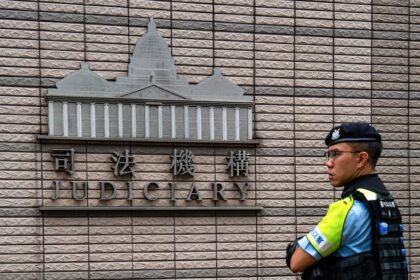A fast evolving fraud that blends romance and crypto
Romance scams tied to cryptocurrency investments have surged across South Korea in 2025, blending emotional manipulation with slick financial deception. Police data submitted to a National Assembly lawmaker shows 1,565 reported romance scam cases from January to September, with losses surpassing 100 billion won this year. Apprehensions have improved compared with 2024, yet suspects have been arrested in fewer than half of cases. The trend points to a crime model that is scalable, tech savvy, and increasingly local in its presentation.
- A fast evolving fraud that blends romance and crypto
- How pig butchering works in the Korean context
- By the numbers: cases, losses and arrests
- From foreign personas to fluent locals
- AI tools make scams look real
- The Cambodia link and the Southeast Asia scam industry
- Crypto rails and laundering routes
- Why victims get trapped
- Policy moves and law enforcement response
- How to protect yourself
- Key Points
The schemes often follow a script known as pig butchering. Criminals spend weeks nurturing an online relationship, then steer victims into what looks like a private, high yield crypto opportunity. Fake platforms display fabricated balances and staged profits. When larger sums are deposited or a victim attempts to withdraw, the platform freezes or vanishes and the contact breaks off. The same networks branch into courier fee scams for packages that do not exist, sham e commerce projects, and point giveaway schemes that require upfront processing fees.
What makes the current wave different is the blending of traditional romance scripts with local language fluency, culturally aware messaging, and advanced digital tools. Crime groups recruit Korean speakers and teach them to match local habits and slang. Deepfake images and videos, forged IDs, and cloned voices help scammers pass casual checks by wary targets. These operations are transnational in staffing and infrastructure, yet their messages feel disarmingly domestic to a Korean user chatting on a familiar app.
How pig butchering works in the Korean context
The term pig butchering originated in Chinese criminal slang. It describes a process where scammers fatten a victim with affection and fake gains before the final loss. In South Korea, communication typically begins on social platforms or dating apps and shifts quickly to encrypted or private messaging services. Daily chats create intimacy. The scammer then introduces an invite only investment platform that appears professional, complete with dashboards, price feeds, and responsive customer support. Victims are encouraged to test small deposits, watch false profits accrue, then reinvest or add larger amounts.
Investigators in South Korea describe recurring features. KakaoTalk is a common channel for romantic communications. Scammers mirror local dating norms, from honorific speech to familiar discussion of work and family, which lowers suspicion. When investment pitches begin, the scammer frames it as a privilege reserved for trusted friends or partners. Victims who ask to withdraw are told about limited trading windows, tax fees, or account verifications to delay or block cash outs. Those delays create time pressure that pushes further deposits.
These crimes are not isolated chats between two people. Behind a single persona, there may be a rotating team following scripts, tracking each victim’s messages and emotional responses, and escalating to trained closers when large deposits are at stake. The investment websites are disposable. Domains switch, app links update, and the payment rails shift between bank transfers, stablecoins, and other channels to stay ahead of law enforcement.
By the numbers: cases, losses and arrests
Police began formally tracking romance scam losses in early 2024 as complaints mounted. Between February and December 2024, authorities recorded 1,265 cases with losses of about 67.5 billion won. In the first seven months of 2025, another 1,163 cases were reported, with damages exceeding 70 billion won. By September 2025, the case count reached 1,565 and total losses for the year crossed 100 billion won. The surge represents a jump of roughly 48 percent in losses compared with 2024.
The arrest rate has risen but remains incomplete. In 2025, police reported arrests in 46.9 percent of cases. Last year, arrests occurred in just 12.7 percent of cases. Many suspects operate from abroad or move quickly between jurisdictions, which complicates warrants and extraditions. The numbers also likely understate the true scale, since embarrassment and fear of blame keep some victims from reporting.
From foreign personas to fluent locals
Earlier romance scams in South Korea leaned heavily on foreign identities. Fraudsters pretended to be overseas doctors, peacekeeping soldiers, or finance professionals, then asked for money under the pretext of travel fees, customs clearances, or emergencies. These profiles targeted English speaking users and relied on stolen photos. The latest operations look different. Crime groups in Southeast Asia recruit fluent Korean speakers and train them to adopt local names and mannerisms. This shift makes the scams feel more authentic and reduces obvious red flags.
One case this year highlighted the evolution. A Korean couple alleged to be behind a 12 billion won pig butchering network was arrested in Cambodia, with Seoul requesting extradition. Investigators said the network was recruiting and training South Koreans to manage fraud rings that specifically targeted victims back home. The presence of Korean staff inside foreign scam compounds allows faster adaptation to local slang, Korean platform updates, and bank procedures.
AI tools make scams look real
Artificial intelligence has raised the ceiling for deception. Scammers use deepfake images and videos to impersonate celebrities, business executives, or military officers, and altered IDs enhance the ruse. In a recent case, a woman in her 50s lost 5 billion won after being shown AI generated images and videos of a famous celebrity. Video chats that once reassured people can no longer guarantee authenticity. Voice cloning tools can also mimic accents and cadences pulled from short audio samples, while automated scripts help maintain frequent contact with multiple victims at once.
For many targets, the interplay of emotional grooming and technological polish overcomes healthy skepticism. A convincing video call, a confident explanation of a blockchain address, and a smooth customer support chat can be enough to disarm someone’s concerns. Basic checks are still useful. Reverse image searches can expose stolen photos, and asking for a brief live interaction on camera with a specific gesture can disrupt some deepfakes. Yet the barrier to faking realism is lower than a few years ago, and the scammers’ playbook keeps expanding.
The Cambodia link and the Southeast Asia scam industry
South Korean cases often intersect with scam centers in Cambodia and neighboring countries. In October, 64 South Koreans linked to cyber fraud operations in Cambodia were repatriated and taken into custody. Officials in Seoul say some nationals are lured by fake job offers, then trafficked into compounds and forced to scam victims. Others get involved willingly. Following the killing of a Korean college student in Cambodia in August, South Korea sent a senior delegation that included police and intelligence officials and announced a travel ban to several areas known for scam compounds.
Regional scam centers proliferated after the pandemic, concentrating in special economic zones in Cambodia, Laos, and Myanmar. Operators favor locations near reliable power and telecoms and take advantage of weak oversight. Rights groups and investigators describe a grim mix: workers from across Asia and other regions are pitched high salary jobs, then have their passports confiscated and face confinement or abuse. The same compounds run romance scams, investment fraud, sextortion, and voice phishing, switching scripts as needed.
International pressure has begun to mount. Recently, authorities in the United States and the United Kingdom announced sanctions on a Cambodia based network identified as Prince Group, accusing it of running a chain of scam centers across the region. Such actions aim to choke off financing, limit access to banking, and signal consequences to local power brokers that protect the industry. Coordinated responses are challenging because the actors, the servers, and the money flows cross many borders.
Crypto rails and laundering routes
Crypto is central to the business model for pig butchering in South Korea. Fake platforms often request deposits in stablecoins or route fiat transfers through mule accounts that convert funds into digital assets. Once converted, funds hop across wallets, exchanges, and payment processors, making recovery difficult. Investigators say that some Cambodia linked entities moved money through South Korean crypto exchanges, exploiting deep liquidity in local won market platforms.
One group singled out by foreign and Korean authorities is the Cambodia based Huione network, which has been sanctioned by the United States for its role in transnational crime. Records shared with lawmakers in Seoul indicate that a Huione affiliate conducted millions of dollars in USDT transactions with major Korean exchanges over several years. The transfers coincided with a spike in kidnapping and cyber fraud incidents tied to Cambodian compounds. The case illustrates how criminal funds can wash through legitimate venues and why exchanges face pressure to tighten controls, scrutinize high risk counterparties, and respond quickly to law enforcement data.
Why victims get trapped
Victims often describe a long period of seemingly sincere companionship. The scammer listens, checks in, and provides encouragement. Small, early profits on the platform validate the relationship and the investment idea. The interplay of affection, urgency, and social proof quiets skepticism. Shame and fear of losing face then keep people from asking for help even when doubts arise.
South Korean cultural patterns shape the dynamic. Deference to perceived expertise, a preference for private messaging, and fast moving crypto gossip in chat rooms can add persuasive power to scams. Many victims are financially literate and tech savvy, which shows this is about psychology, not ignorance. Victim support forums include accounts of people who lost life savings and sought psychiatric treatment after the discovery of the fraud.
Policy moves and law enforcement response
Authorities in Seoul have shifted from piecemeal arrests to a broader strategy that mixes diplomacy, policing, and financial controls. Police began tracking romance scams as a separate category in 2024. Arrest rates have improved in 2025, yet apprehending 46.9 percent of suspects still leaves many cases unresolved. The National Police Agency has pushed for closer cooperation with counterparts in Cambodia and other Southeast Asian partners and coordinated repatriations of suspects and rescued workers. The government has also restricted travel to several Cambodian areas prone to kidnapping and confinement in scam compounds.
Efforts now target the infrastructure that enables the crime. Regulators are pressing exchanges and payment firms to strengthen monitoring of high risk flows, while banks refine alerts for mule accounts. Police and prosecutors are pursuing extraditions tied to Korean led networks that operate abroad. Senior security officials say the issue will be raised at regional summits to align tactics, share data from rescued workers, and improve speed on cross border warrants.
A legal gap makes recovery difficult once funds leave a bank account. Korea’s Telecommunications Financial Fraud Prevention Act helps freeze suspicious transfers in classic voice phishing cases. It often does not apply to romance scams because criminals present the transfer as payment for a service or investment. Some legal scholars and policing experts argue for expanding temporary freeze powers and for clear standards that let banks act when romance scam indicators are present.
Seo Jun bae, a professor at Korean National Police University, has been vocal about the need to protect romance scam victims with the same tools used in other financial fraud cases. He has studied how the current carve outs let criminals move money quickly once victims click send.
Romance scams are also multiple victim frauds. Refusing to halt withdrawals simply because they involve fake investments is unreasonable, he said.
How to protect yourself
Personal vigilance is not a cure all, but several habits reduce risk in high pressure online relationships and investment pitches. Treat every exclusive, invite only trading offer as a red flag. Do not move money to websites or apps that are not regulated by Korean authorities, and do not accept instructions to transfer funds to a person for supposed platform tax, unlock, or verification fees. Demand live proof of identity that a deepfake cannot easily copy, like a real time gesture with your name and the current date, and cross check photos and videos with reverse image search tools.
- Keep chats on the platform where you met until verification steps are complete. Scammers push targets to private messaging to reduce oversight.
- Verify investment licenses and registrations with official Korean regulators. A genuine broker will have a verifiable company, phone, and address.
- Test small withdrawals before any larger deposit. A platform that delays or invents new fees at withdrawal is a danger sign.
- Do not let someone else guide you through opening a crypto wallet or exchange account. Control your credentials and enable strong two factor authentication.
- Be wary of time pressure, claims of guaranteed returns, or VIP slots that close tonight. High pressure and guaranteed profit typically signal fraud.
- Talk to someone you trust before sending money. A third party perspective can break the isolation that scammers cultivate.
- If you suspect fraud, stop transferring funds immediately and report to police and your bank. Fast reporting can help preserve evidence and block further transfers.
Key Points
- Romance scams tied to crypto investments have cost victims in South Korea more than 100 billion won in 2025, with 1,565 reported cases by September.
- Arrests occurred in 46.9 percent of cases this year, up from 12.7 percent in 2024, yet many suspects operate from abroad and evade capture.
- Pig butchering tactics combine long grooming periods with fake trading platforms that show fabricated returns before blocking withdrawals.
- Scammers now use fluent Korean speakers, deepfakes, and forged documents to mimic local identities and pass casual checks.
- South Korea repatriated 64 nationals from Cambodia linked to scam centers as part of a wider crackdown and imposed travel restrictions to high risk areas.
- US and UK sanctions targeted a Cambodia based network accused of running regional scam compounds, signaling growing international pressure.
- Authorities and lawmakers in Seoul are pressing exchanges and banks to tighten controls, and experts urge legal changes to let banks freeze suspect romance scam transfers.
- Practical defenses include verifying licenses with regulators, testing withdrawals, refusing pressure tactics, and reporting suspected fraud immediately.












